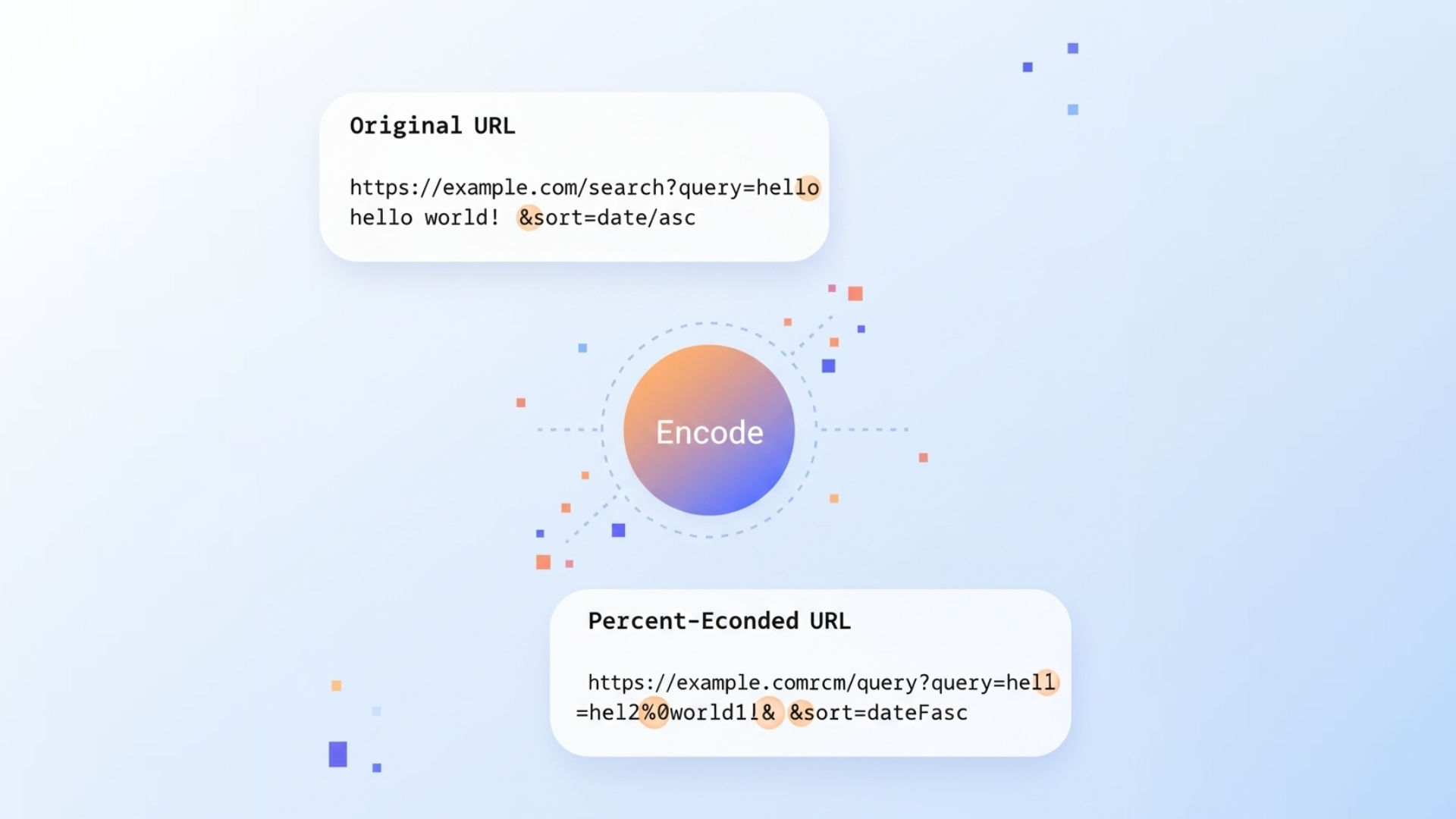URL Encoder: Importance, How It Works, and Applications
A URL encoder is an essential tool in web development that converts characters into a format that can be transmitted over the Internet. When sending data via URLs, certain characters need to be encoded to ensure that the URL is valid and interpretable by web browsers and servers.
What is a URL Encoder?
A URL encoder, also known as percent-encoding, replaces unsafe ASCII characters with a "%" followed by two hexadecimal digits. This process ensures that special characters in URLs, such as spaces, punctuation, and reserved characters, do not cause errors when transmitted over the web.
Why URL Encoding is Necessary
URLs can only contain a limited set of characters: letters, digits, and a few special characters like "-", "_", ".", and "~". Characters outside this set, such as spaces or symbols, need to be encoded. For instance, a space is encoded as "%20". Without encoding, URLs with unsafe characters can break links or produce unexpected results.
How URL Encoding Works
URL encoding works by converting each character into its corresponding ASCII byte value and then representing it in hexadecimal format preceded by a "%". For example, the character "@" is converted into "%40". This encoding allows the data to travel safely through HTTP requests.
Common URL Encoded Characters
- Space: %20
- Exclamation mark (!): %21
- Asterisk (*): %2A
- Single quote ('): %27
- Parentheses (): %28 %29
Applications of URL Encoder
URL encoding is widely used in web development, APIs, and data transmission. Some common applications include:
- Form Submission: Encoding user input ensures safe transmission of data through GET or POST requests.
- APIs: Sending parameters in URLs for RESTful API calls requires encoding special characters.
- Query Strings: Encoding ensures that query strings containing special characters are correctly interpreted by the server.
- Data Storage: Encoding prevents errors when storing URLs in databases or logs.
Tools and Methods for URL Encoding
URL encoding can be done manually using online tools or programmatically using programming languages such as JavaScript, Python, and PHP. Most modern web frameworks provide built-in functions for encoding and decoding URLs, ensuring accuracy and efficiency.
Example in JavaScript
let url = "https://example.com/search?query=hello world";
let encodedUrl = encodeURIComponent(url);
console.log(encodedUrl);
// Output: https%3A%2F%2Fexample.com%2Fsearch%3Fquery%3Dhello%20world
Conclusion
URL encoding is a fundamental practice in web development that ensures safe transmission of URLs containing special characters. By understanding its importance, how it works, and its practical applications, developers can prevent errors, improve user experience, and maintain proper web communication standards.
